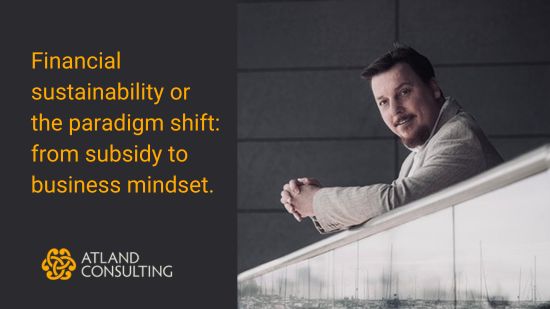Today we share a publication by Jorge Gimeno Pawlowski
The European Commission at the end of 2021 implemented the Action Plan for the Social Economy thus starting a revolution by turning the Social Economy into an industrial sector, just like construction or automotive. With an initial state of the art of 8% of the European GDP and around 12 million people employed, social entities are facing a change of management that should be reflected in two fundamental pillars, quality jobs and a greater economic impact.
Why has the European Commission implemented these measures?
For a variety of reasons that demonstrate a strategic and sustainable perspective. The following are the most important in my opinion:
- To strengthen and accelerate the implementation of the European strategies Green Pact and the European Digital Strategy. The social economy is a key player in the development of both, due to its proximity to citizens, its weight in social dialogue and, consequently, its capacity to influence. Starting from the premise that, in general, the entities of this sector are champions of sustainability, equality or inclusion, motivating them to be financially independent should reinforce these strategies by increasing the impact of this type of entities.
- Change the funding model. For decades, the European Union has been subsidising projects that have failed to move beyond the EU-funded stage. Thousands of consortia have tried to implement solutions that the market has not taken up or that were doomed to failure from the outset. This has resulted in a loss of effectiveness of public money in Europe, meaning our taxes. The period of chronic instability since the economic crisis of 2008 in which we have been involved is forcing us to create a scenario where subsidies must give way to diversification and income generation by social entities. Social entrepreneurship and impact investment are consequently strengthened by this action plan.
- Bridging the gap between NGOs and business. Achieving a sustainable economy in Europe means reducing Corporate Social Responsibility and increasing the Corporate Sustainability of companies. We will see an acceleration in the number of sustainably managed companies from 2024, when the Corporate Sustainability Reporting Directive (CSRD) will be implemented. Consequently, we can foresee that cooperation between companies and NGOs in the classical sense will make less and less sense. By the classic format I mean a partnership, including an economic one, between a company X that implements its CSR strategy and an NGO that implements the operational part of this strategy. If a company is sustainable, its governance, its social impact and its ecological impact are also sustainable, so we can venture to say that a sustainable company has a lot in common with a social enterprise, as profit is no longer the only objective.
In the same way, we can venture to say that social entities, as they are forced to have a more entrepreneurial perspective, notably reducing the 60% that subsidies represent in their budgets, will change their form of management to a more entrepreneurial format, closer to that of sustainable enterprises.
In my opinion from 2030 onwards we will see a more sustainable European economy where only areas highly dependent on NGOs, such as the response to natural disasters, will still have NGOs in a more classical format with the social enterprise being the most popular type of entity in the Social Economy.
And how do you generate income and reduce dependence on subsidies?
In many different ways, I know, it sounds like a truism, but social entities have more and more options and more diversified ways of obtaining resources.
My first recommendation is to change the third sector’s approach to money. Generating money is good, generating a lot of money is very good, the problem is not in having money but in how we spend it. The Amica Association, with which I have been working for 5 years, generates around 22 million euros a year, creating a social and ecological impact of more than 40 million euros. Their mission is to ensure that people with disabilities have the same facilities as everyone else, at all levels. They own and manage special employment centres, receive grants, have a tree sponsorship programme at Campus Diversia, offer consultancy services, work with impact investors and will shortly start producing biomass. Why? Because they are driven by entrepreneurship and generating positive impact.
This is in my opinion the best way to manage a social entity, like a company.
And what channels to generate income can we find today?
In addition to the classic formats such as individual, large or corporate donations, sponsorships, fundraising or the aforementioned grants, we can find very different channels for generating income:
1. Crowfunding.
2. Impact investment.
3. Monetisation of services.
4. Selling knowledge or consultancy.
5. Tenders.
6. International funding programmes.
7. Patient capital.
8. Joint Ventures.
9. Strategic alliances.
10. Product sales and distribution.
11. Leasing of facilities.
12. Liability capital management.
13. Memberships.
14. Lotteries and auctions.
15. Assignment of licences and patents.
16. Advertising on social networks.
17. Events.
18. Creation and sale of courses.
19. Personal and professional training.
20. Franchises.
The list goes on, but I think it is enough for you to understand my idea. Today, the vehicles for social entities to generate income are greater than those of companies. Practically all the income generation channels of the private sector are available to social entities (with the exception of specific legal frameworks) to which the classic channels can be added.
The revolution of increasing the quality of jobs (including wages) and the economic impact of the social economy is a huge opportunity on which to build a more sustainable and people-centred Europe. Not all social enterprises will succeed in this process, but the sooner they start thinking about entrepreneurship, the sooner they will be able to ensure their financial sustainability.



